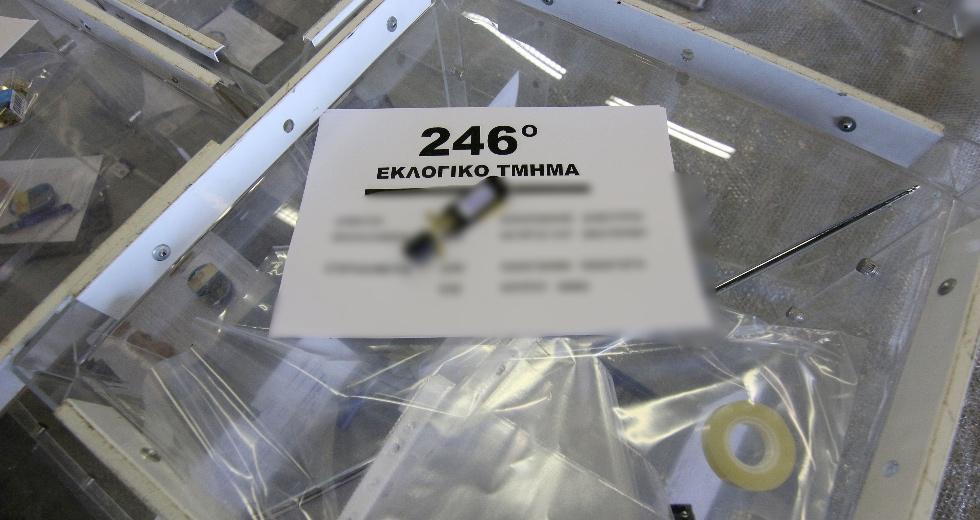
This is perhaps the most ambiguous electoral contest of the last decade: the facts of the election battle of May 21 have already changed many times, with the tragedy in Tempi largely shaping a new agenda, while the attitude of PASOK and the “neither Tsipras nor Mitsotakis” slogan makes the elections a political game for three.
The only thing that has not changed are the boundaries within which the three largest parties aspire to move.
Mainly the turning point, the percentage – “psychological threshold” that facilitates their narratives and allows them to say that they are close to the goal they have set, whether the first ballot box brings forth a government or a repeat election is needed.
New Democracy
For governing New Democracy party, the most important thing is that the percentage of the first Sunday shows that there is a serious possibility that the party will gain self-reliance in the second round, with the system of enhanced proportionality – after all, Kyriakos Mitsotakis himself has recently been constantly emphasizing that the result on May 21 it will be seen who will be the next prime minister, but also what kind of government will emerge.
The need becomes more urgent, given the “red line” of PASOK – KINAL for the person of the prime minister – especially since for many new Democracy cadres PASOK is the only parliamentary party that could potentially become a government coalition partner.
Estimates so far put the “psychological” limit for New Democracy at 34%, so that it can mindlessly hand over the mandate betting on the upcoming self-reliance.
SYRIZA
Based on the numbers quoted by pollsters so far, the same limit for SYRIZA is 30%. Given that pollsters have consistently found SYRIZA lower than it is actually measured at the ballot box and considering its percentage in 2019, the number “3” in front of the double digit is particularly important. It keeps a (relatively) short distance from the first party and maintains a safe distance from the third party.
Allowing on the one hand dreams of overturning the image in the second ballot and on the other hand keeping the data “clean” in the progressive space, with Alexis Tsipras requesting an order for the formation of a progressive government of cooperation from the first Sunday.
At the same time, 30% gives SYRIZA a percentage close to the percentage it received in 2019, a fact that even in the event of defeat keeps SYRIZA within the framework of bipartisanship and Alexis Tsipras himself in a state of internal party acquiesence.
PASOK – KINAL
For PASOK – KINAL, the strong double-digit percentage is, according to Nikos Androulakis, of utmost importance. With this, the party will enter coalition discussions on the basis of programmatic convergences and persons of “common acceptance”, without taking the popular will as an order to stay in the opposition.
The interpretation of the “strong double digit” obviously depends on the percentages of New Democracy and SYRIZA, but the “psychological” limit of 12% not only allows PASOK to sit at the cooperation table without being considered a “supplement” of the first party , but at the same time it almost ensures that, even if these discussions are ultimately not successful, the double digits will remain in the second ballot as well. And this regardless of the polarization that will exist between the two first parties.
Latest News

Current Account Deficit Fell by €573.2ml Feb. 2025: BoG
The improvement of Greece’s current account was mainly attributed to a more robust balance of goods and, to a lesser extent, an improved primary income account

Hellenic Food Authority Issues Food Safety Tips for Easter
Food safety tips on how to make sure your lamb has been properly inspected and your eggs stay fresh.

Greek Kiwifruit Exports Smash 200,000-Ton Mark, Setting New Record
According to data by the Association of Greek Fruit, Vegetable and Juice Exporters, Incofruit Hellas, between September 1, 2024, and April 17, 2025, kiwifruit exports increased by 14.2%.

Easter Tourism Boom: Greece Sees 18.3% Surge in Hotel Bookings
Among foreign markets, Israel has emerged as the biggest growth driver, with hotel bookings more than doubling—up 178.5% year-on-year.

Greece to Launch Fast-Track Tender for Offshore Hydrocarbon Exploration
Last week, Papastavrou signed the acceptance of interest for the two Cretan blocks, while similar decisions regarding the two Ionian Sea blocks were signed by his predecessor

American-Hellenic Chamber of Commerce to Open Washington D.C. Branch
AmCham's new office aims aims to deepen U.S.-Greece economic ties and promote investment and innovation between the two countries

Why Greece’s New Maritime Spatial Plan Is a Geopolitical Game-Changer
This landmark development is more than just a bureaucratic step — it's a strategic declaration about how Greece intends to use, protect, and assert control over its seas
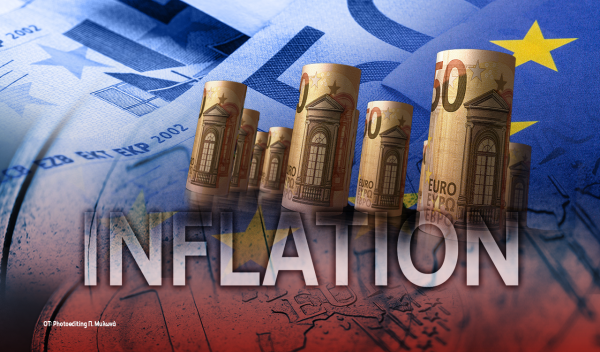
Eurozone Inflation Eases to 2.2% in March
Compared to February, inflation decreased in 16 member states, remained unchanged in one, and rose in ten.

Bank of Greece: Primary Gov. Surplus €4.1b Jan.-March 2025
The data released today by the Bank of Greece revealed that the central government’s overall cash balance recorded a surplus of €1.465 billion in the first quarter of 2025, compared to a deficit of €359 million in the corresponding period of 2024.

Greek Government Reissues 10-Year Bond Auction for €200 Million
The amount to be auctioned will be up to 200 million euros, and the settlement date is set for Friday, April 25, 2025 (T+5)








![Πλημμύρες: Σημειώθηκαν σε επίπεδα ρεκόρ στην Ευρώπη το 2024 [γράφημα]](https://www.ot.gr/wp-content/uploads/2025/04/FLOOD_HUNGRY-90x90.jpg)

















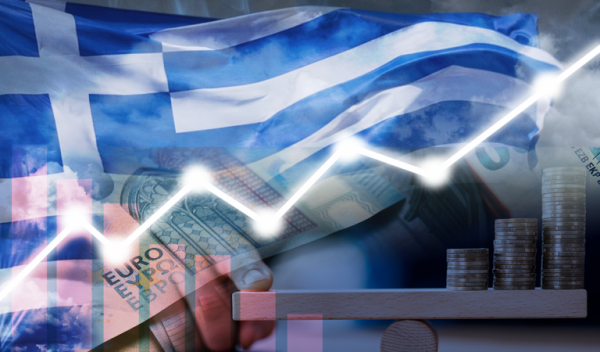
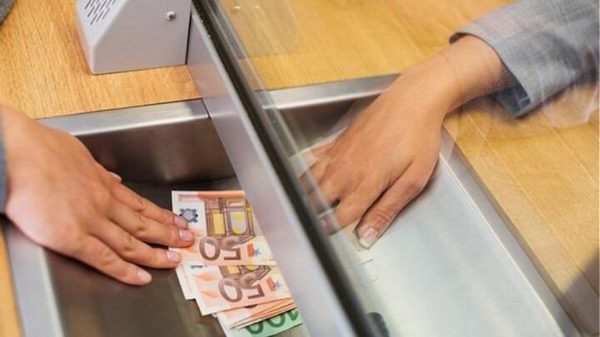

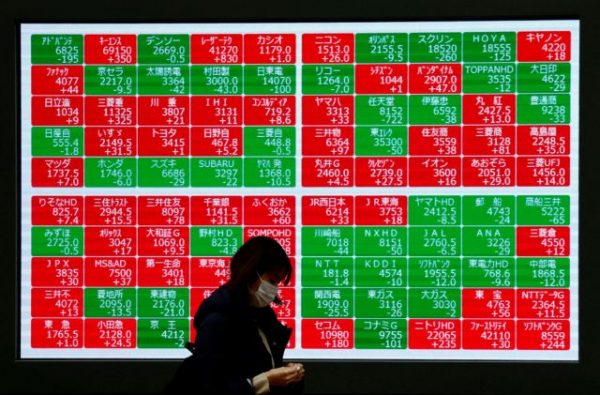

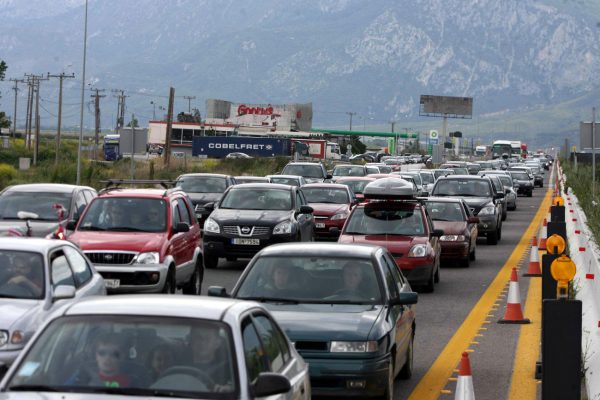










 Αριθμός Πιστοποίησης
Αριθμός Πιστοποίησης